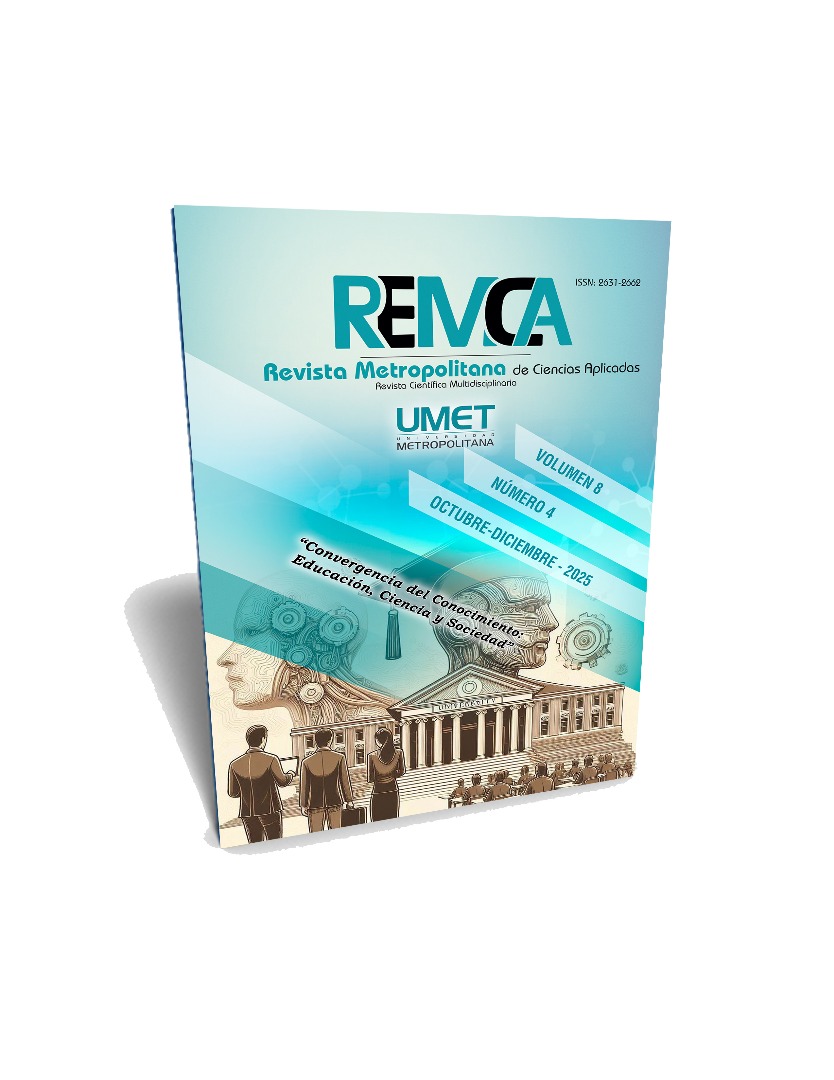Linear regression in the sales process and its influence on organizational competitiveness in Big Data environments
DOI:
https://doi.org/10.62452/1bt7mb66Keywords:
Linear regression, organizational competitiveness, fashion retail, Big Data analysis, sales processAbstract
In the competitive fashion retail sector, sales optimization through the use of Big Data has become an essential element for sustaining competitiveness. This study applied linear regression models to analyze the influence of key variables on the performance of clothing stores, using simulated data processed in Apache Spark. Through a backward elimination process, the initial model was refined, and it was identified that conversion rate and price satisfaction are positively correlated with competitiveness, while competitive pricing shows a negative relationship. These findings reveal that beyond price reduction, factors related to the conversion of interest into purchase and the perception of satisfaction are decisive in shaping the value proposition of organizations. Consequently, linear regression emerges as a valuable analytical tool to guide strategic decisions that strengthen competitiveness in fashion retail within a Big Data–driven environment.
Downloads
References
Akand, F. (2024). Impact of social media influencers on purchase intentions: A comprehensive study across industries. International Journal of Multidisciplinary Research Updates, 7(2), 61–67. https://doi.org/10.53430/ijmru.2024.7.2.0035
Alexander, M., Kusleika, R., & Walkenbach, J. (2018). Excel 2019 bible (1.ª ed.). Wiley.
Anderson, D. R., Sweeney, D. J., & Williams, T. A. (2024). Statistics for Business & Economics. Cengage Learning.
Dolgui, A., Ivanov, D., & Sokolov, B. (2018). Ripple effect in the supply chain: An analysis and recent literature. International Journal of Production Research, 56(1–2), 414–430. https://doi.org/10.1080/00207543.2017.1387680
Firework Staff. (2024). Los 10 principales desafíos de retención de clientes y cómo superarlos. https://firework.com/es/blog/desafios-retencion-clientes
Gong, Y. (2024). The impact of Big Data on the fashion industry. AEMPS, 143. https://doi.org/10.54254/2754-1169/2024.GA18973
Gujarati, D. (2023). Essentials of Econometrics. SAGE Publications, Inc.
Hair, J. F., Black, W. C., Babin, B. J., & Anderson, R. E. (2022). Multivariate data analysis (9.ª ed.). Pearson Education.
Khan, F. R., Phung, S. P., & Raju, V. (2024). The impact of social media influencers on consumer purchase intention in conservative societies. Journal of Reproducible Research, 2(2), 172–181.
Kumar, V., Jones, E., Venkatesan, R., & Leone, R. P. (2011). Is market orientation a source of sustainable competitive advantage or simply the cost of competing? Journal of Marketing, 75(1), 16–30. https://doi.org/10.1509/jm.75.1.16
Liu, Y., & Ding, Z. (2022). Personalized recommendation model of electronic commerce in new media era based on semantic emotion analysis. Frontiers in psychology, 13, 952622. https://doi.org/10.3389/fpsyg.2022.952622
Polacek, L., Ulman, M., Cihelka, P., & Šilerová, E. (2024). Dynamic pricing in e-commerce: Bibliometric analysis. Acta Informatica Pragensia, 13(23). https://doi.org/10.18267/j.aip.227
Potla, R. T. (2022). Scalable Machine Learning Algorithms for Big Data Analytics: Challenges and Opportunities. Journal of Artificial Intelligence Research, 2(2), 124–141. Retrieved from https://thesciencebrigade.com/JAIR/article/view/327
Rawlings, J. O., Pantula, S. G., & Dickey, D. A. (1998). Applied regression analysis: A research tool (2.ª ed.). Springer.
Saldaña, J. (2021). The coding manual for qualitative researchers (4.ª ed.). SAGE Publications.
Serrano-Orellana, K., Sousa-Barros, I., & Chang-Fernández, A. (Comp.). (2025). Transformación digital, tributación y nuevas tecnologías: Estudios aplicados en el contexto empresarial ecuatoriano. Sophia Editions.
Shankar, V. (2019). Big data and analytics in retailing. NIM Marketing Intelligence Review, 11(1), 37–40. https://doi.org/10.2478/nimmir-2019-0006
Varma, M. A. (2022). Use of big data in the process of customer segmentation in the retail sector. Technoarete Transactions on Advances in Data Science and Analytics, 1(2), 1–6. https://doi.org/10.36647/TTADSA/01.02.A002
Wickham, H., Averick, M., Bryan, J., Chang, W., D’Agostino McGowan, L., François, R., Grolemund, G., Hayes, A., Henry, L., Hester, J., Kuhn, M., Pedersen, T. L., Miller, E., Bache, S. M., Müller, K., Ooms, J., Robinson, D., Seidel, D. P., Spinu, V., Takahashi, K., Vaughan, D., Wilke, C., Woo, K., & Yutani, H. (2019). Welcome to the Tidyverse. Journal of Open Source Software, 4(43), 1686. https://doi.org/10.21105/joss.01686
Wooldridge, J. M. (2020). Introductory econometrics: A modern approach. Cengage Learning.
Downloads
Published
Issue
Section
License
Copyright (c) 2025 Bolívar Solano-Morales (Autor/a)

This work is licensed under a Creative Commons Attribution-NonCommercial-ShareAlike 4.0 International License.
Authors who publish in Revista Metropolitana de Ciencias Aplicadas (REMCA), agree to the following terms:
1. Copyright
Authors retain unrestricted copyright to their work. Authors grant the journal the right of first publication. To this end, they assign the journal non-exclusive exploitation rights (reproduction, distribution, public communication, and transformation). Authors may enter into additional agreements for the non-exclusive distribution of the version of the work published in the journal, provided that acknowledgment of its initial publication in this journal is given.
© The authors.
2. License
The articles are published in the journal under the Creative Commons Attribution-NonCommercial-ShareAlike 4.0 International License (CC BY-NC-SA 4.0). The terms can be found at: https://creativecommons.org/licenses/by-nc-sa/4.0/deed.en
This license allows:
- Sharing: Copying and redistributing the material in any medium or format.
- Adapting: Remixing, transforming, and building upon the material.
Under the following terms:
- Attribution: You must give appropriate credit, provide a link to the license, and indicate if any changes were made. You may do this in any reasonable manner, but not in any way that suggests the licensor endorses or sponsors your use.
- NonCommercial: You may not use the material for commercial purposes.
- ShareAlike: If you remix, transform, or build upon the material, you must distribute your creation under the same license as the original work.
There are no additional restrictions. You may not apply legal terms or technological measures that legally restrict others from doing anything the license permits.




